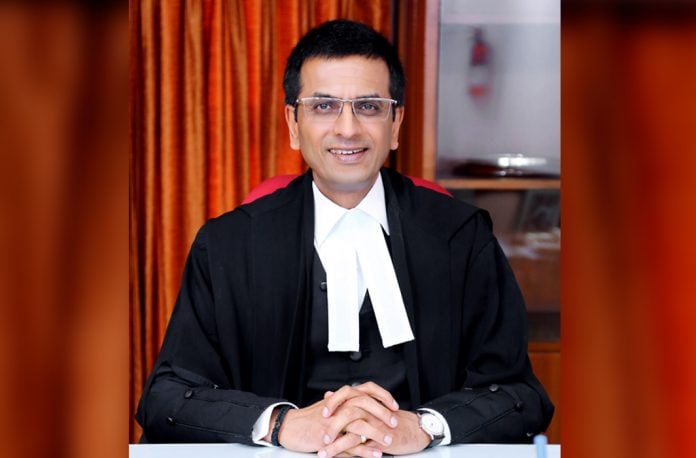The Supreme Courts Justice DY Chandrachud on Friday said that Courts in India are overcrowded so mediation is the most important tool to resolve disputes in a non-adversarial manner.
Justice Chandrachud said that mediation is a way that can bring social change along with being more beneficial to marginalised communities and women.
He said that “We are all aware that courts and courtrooms in India are crowded, both physically and metaphorically. In view of pendency numbers, dispute resolution mechanisms like mediation are an important tool that go about in a non-adversarial manner.
However,the cautioned against parties agreeing to go for mediation merely out of deference to the authority of courts.
“Courts shouldn’t impose their opinion of the best legal resolution process. I have held back from always referring to mediation as a judge. Biggest fear is they would be mediating out of deference. We don’t want that” Justice Chandrachud added.
Justice Chandrachud spoke on this while he was addressing the Justice YV Chandrachud memorial lecture on ‘The Future of Mediation in India’ at the ILS Law College, Pune. Justice also inaugurate the ILS Centre for Arbitration and Mediation on the occasion.
Talking and praising about the cause of mediation as a form of alternate dispute resolution (ADR) in the India, he said
“The future of mediation in India is its ability to impact social change. In my view, mediation is a tool for social change, brought in consonance with constitutional values and the flow of information.”
Walking through the memory lanes ,Justice Chandrachud recalled how his father Justice YV Chandrachud would reach ILS on chilly mornings in Pune”Of course climate change has overtaken us. Unless the NGT [National Green Tribunal] does something for us. I am happy that the NGT is here in person and not virtually.”
The judge also said he was happy and delighted to see the choice of acronym for the newly-established mediation centre at ILS.
“I am delighted that the acronym for the new centre is ILSCA; I think that is in keeping in mind our quest for gender justice in our society.”
Along with this, Justice Chandrachud also hoped that the Singapore Convention on Mediation which India is signatory is ratified at the earliest .
On Alternate dispute resolution (ADR) and mediation in the country, Justice said “I would prefer the word to be ‘appropriate’ instead of ‘alternate’ in ADR.”
Justice Chandrachud while talking on the suitability of mediation as a more suitable form of legal remedy than traditional options explained,
“Traditional legal remedies adopt a one-size fits all approach. Mediation can take into account social relations and family dynamics. Mediation when it succeeds, succeeds. But even when it fails, it achieves a great deal as parties have begun talking … The finer tenets of mediation are more suitable to marginalised communities. They can put forth their voice, specially women, rather than go by the words of a lawyer. Mediation means that voices of all parties have to be heard.”
The Supreme Court Judge said that even as mediation helps in bringing clarity as to the nature of the dispute, it comes with its procedural and structural inequalities.
“Bias in mediation translates in two forms – one that is inherent because of the unequal bargaining power – for example employer versus worker, wife versus husband etc. Plus the need for an objective nature of the mediation. Those with more higher tangible resources and social standing hold more stead than others. So when members of marginalised groups stand for mediation, dialogue occurs between unequal parties.”
Talking of the other side of mediation, the Judge added that this may sometimes mean that those from the marginalised sections of society,when opt for mediation over litigation, can end up settling for less due to their reduced bargaining power in the face of the other route being more expensive
While ending his speech, he added “How can they afford a top rank Supreme Court lawyer? We must deploy the resources of NALSA (National Legal Services Authority), [to] give them higher bargaining power in a mediation setting.”


